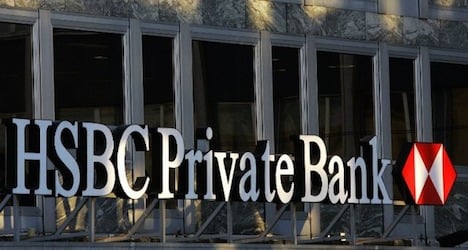Martin Wheatley, chief executive of the Financial Conduct Authority (FCA), said on Tuesday that it did not know about the claims regarding the London-based bank's Swiss division before they emerged in a cache of secret files published last weekend.
HM Revenue and Customs, Britain's tax authority, was passed information about 3,600 UK businesses and individuals in 2010 and recouped more than £135 million ($206 million).
But Wheatley told parliament's Treasury committee: "We didn't have the specific allegations as far as I'm aware from HMRC on this particular incident."
Committee members responded with incredulity, given that the FCA has been working closely with HSBC since 2013 to improve its implementation of anti-money laundering rules following a string of high-profile controversies at the bank.
HMRC chief executive Lin Homer later said that when it was passed files by the French authorities on HSBC's Swiss dealings in 2010, it was prohibited from sharing the information.
"HMRC received the HSBC data under very strict conditions, which limited our use of it to pursuing offshore tax evasion and prevented us from sharing the data with other law enforcement authorities," she said.
"Under these restrictions, we have not been able to seek prosecution for other potential offences, such as money laundering."
Homer said that French authorities on Monday had promised to "provide all assistance necessary to allow HMRC to exploit the data to its fullest".
She said tax officials had also contacted the investigative journalists behind the leaks for more information.
The latest allegations sparked a political row over why Britain did not act sooner.
HMRC said it had flagged to prosecutors three potential criminal cases in the files but that only one of these led to a prosecution.
A spokeswoman for Prime Minister David Cameron said on Tuesday that ministers had also been kept in the dark about the HMRC investigation.
Hervé Falciani, an IT worker at HSBC's private bank in Geneva, stole the files in 2007 and passed them to French authorities, but they had not been previously made public.
Their publication on Sunday, detailing claims that HSBC's Swiss division helped clients in more than 200 countries evade taxes on accounts containing $119 billion (104 billion euros), caused global shock waves.
Margaret Hodge, chairwoman of the British parliament's public accounts committee, said late Monday that it would be launching an urgent inquiry into the allegations.
HSBC has acknowledged there had been problems in its Swiss private banking subsidiary, but said that it had been overhauled and now has strong controls in place.
HSBC 'not immune' from fresh US charges
Meanwhile, in the US, HSBC's 2012 criminal settlement with the justice department does not protect the bank from fraud or tax evasion charges, Attorney General nominee Loretta Lynch told lawmakers.
In December 2012, HSBC agreed to pay $1.9 billion in penalties and restitution over charges it failed to have an effective money laundering program and conducted illegal transactions on behalf of Iran, Sudan and other sanctioned countries.
The 2012 agreement with HSBC was "limited to violations of the Bank Secrecy Act for failures to maintain an adequate anti-money laundering program and for sanctions violations," Lynch said in a letter to US senators dated Monday.
The settlement "explicitly mentions that the agreement does not bind the Department's Tax Division, nor the Fraud Section of the Criminal Division," said Lynch.
Lynch's comments in a letter to US senators considering her nomination to lead the Justice Department showed continued fallout from the so-called "Swiss Leaks" scandal.
Documents published by the International Consortium of Investigative Journalists showed the Swiss division of London-based HSBC helped wealthy clients from around the world evade taxes on accounts containing some $119 billion.
The documents show that HSBC opened Swiss accounts for international criminals, businessmen, politicians and celebrities, according to the ICIJ.
In addition to investigations into HSBC's activities in the UK and US, a Belgian judge was said to be considering international arrest warrants for directors of HSBC's Swiss division.



 Please whitelist us to continue reading.
Please whitelist us to continue reading.
Member comments